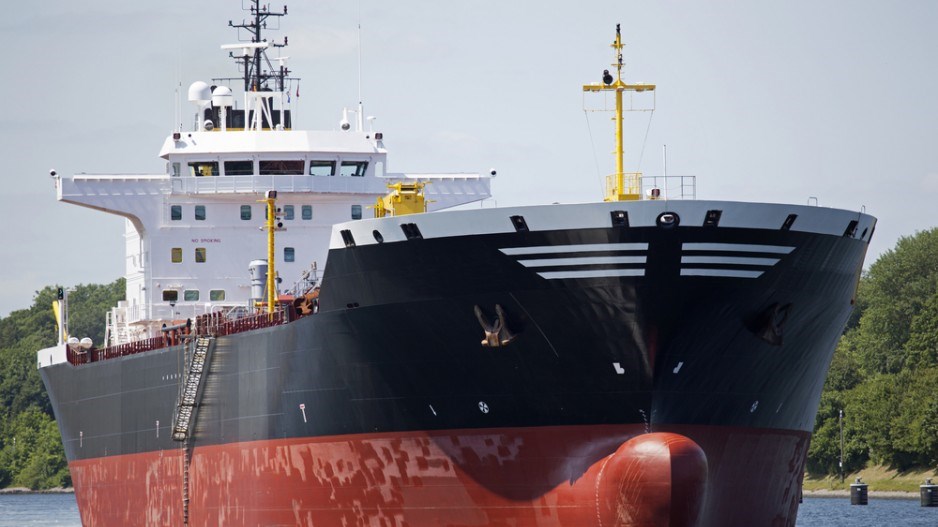Despite an increase in tanker traffic worldwide, oil spills have not proliferated, according to a new Fraser Institute study.
Indeed, notwithstanding a “dramatic” rise in worldwide oil tanker traffic since the 1980s, the number of oils spills has dropped significantly, said the Fraser study, which looked at tanker traffic globally and in Canadian waters.
Between 1985 and 2010, marine transport of oil nearly doubled internationally, while the number of oil spills (those surpassing 700 tonnes) declined sharply, the study by engineer Philip John found. Moreover, of all the seaborne oil spilled worldwide over the past four decades, 56% was spilled in the 1970s while only 3.7% was spilled between 2000 and 2009.
In Canadian waters, the decline was also swift, as the number of major tanker oil spills per decade dropped from 18 in the 1980s, to six in the 1990s, to zero spills between 2000 and 2004. According to Kenneth Green, senior director of the institute’s Centre for Natural Resources, the rise in the amount of oil shipped by sea has coincided with a dramatic drop in spilt oil, which he called “great news for marine wildlife and ecosystems.”
Nevertheless, despite the improved safety record, some activists call for bans or restrictions on tanker traffic in Canadian waters, although the study called the tanker option the “most logical pathway” to oil markets in Asia and Europe.
There has never been a significant oil spill in Canadian waters, despite tens of thousands of transits off the country’s East and West Coasts, the study said.
Indeed, over the past 20 years, the study found the only major oil spill on Canada’s West Coast occurred in 2006 when the B.C. ferry Queen of the North sank with 240 tonnes of oil on board. In contrast, the U.S. supertanker Exxon Valdez spilled roughly 40,000 tonnes of oil into Alaska’s Prince William Sound in 1989.
The most significant oil spill off Canada’s East Coast occurred in 1970, when the tanker Arrow spilled over 10,000 tonnes of oil off Nova Scotia, still only a fraction of the Valdez spill.
Canadian shipping accidents reached a 38-year low of 236 in 2012, down 30% from the 2007-2011 average of 337 incidents, the study said. In 2013, the Transportation Safety Board of Canada noted there were 250 shipping accidents, a five% rise from 2012, but an 18% drop from 2008-2012 average of 305 accidents.
The Fraser analysis also cited factors that will increase the pressure on Canada to find new foreign markets for its oil. For example, as production from this country’s oilsands continues to rise, ample oil will be available for export.
“Foreign energy demand in Canada’s traditional export market is declining and new export markets need to be found and developed, if Canada is to realize the economic benefits of trade in petroleum products,” the study said.
“While risks must be evaluated and mitigated, tankers play an important and irreplaceable role in the transportation of Canada’s energy resources and commodities to foreign markets,” the study’s key findings said. “Volumes of oil shipped on tankers [worldwide] have increased while oil spill frequency and quantities have dramatically decreased.”
The study said marine transport of fuels must be evaluated for reliability and safety. It must also be encouraged “if the cost-benefit analysis reveals seaborne transportation as the most dependable, secure, and cost-effective mode of conveyance of fuels to markets.”
In addition, the study concluded that “fossil fuels” — oil and gas — will continue to be a primary part of the global energy supply, although opposition to the use of tankers as a method of transport continues to grow.
“Tanker traffic on Canada’s coasts, and especially on the West Coast, should be facilitated for national economic progress, sustainable development, and judicious long-term planning in the interest of Canada’s current and future citizens,” the study concluded.
Currently marine fleet manager for the Woodward Group of companies in Newfoundland & Labrador, study author John holds a Ph.D. in engineering. The author of several papers and studies, he has worked in the maritime field throughout his career.




